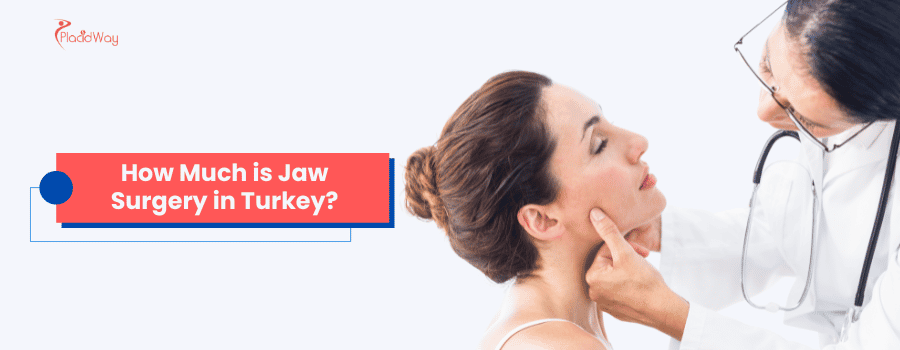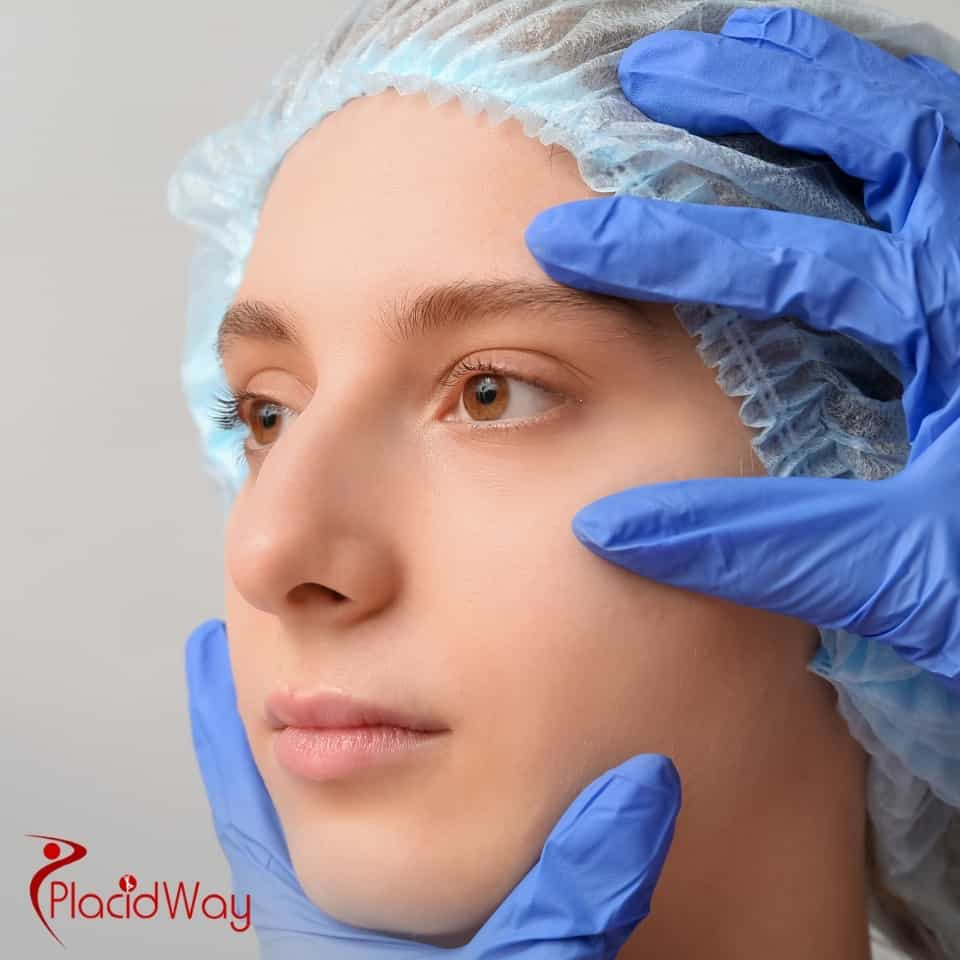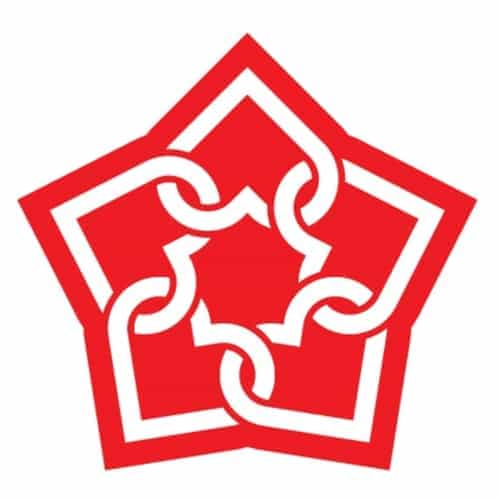Explore the Cost of Jaw Surgery in Turkey

Thinking about jaw surgery? You're not alone. Whether it's to correct a misaligned bite, improve your breathing, or enhance your facial profile, orthognathic (jaw) surgery can be a life-changing procedure. But let's be honest, the cost can be a major hurdle in many Western countries. That's where Turkey comes into the picture. Over the last decade, Turkey has become a global hotspot for medical tourism, offering world-class healthcare at a fraction of the price you'd find in the US, UK, or Europe. If you've been wondering, "How much is jaw surgery in Turkey?" you've come to the right place. This guide is designed to give you a comprehensive overview of what to expect in 2025.
The allure of Turkey isn't just about the lower price tag. It's about the value. Many Turkish clinics are equipped with state-of-the-art technology, staffed by internationally trained and highly experienced maxillofacial surgeons, and offer all-inclusive packages that take the stress out of planning your medical journey. From your initial consultation to your post-operative care, the process is often seamless.
In this post, we'll break down the costs of different types of jaw surgeries, what's typically included in the packages, and answer all the pressing questions you might have. We'll explore why the costs are so much lower, what you should look for in a clinic, and how to prepare for your trip. Let's get into the details and help you make an informed decision about your health and well-being.
What is the average cost of jaw surgery in Turkey?
The cost of orthognathic surgery in Turkey is significantly lower than in many other developed countries. For instance, the same procedure in the United States could cost between $20,000 and $40,000, and in the UK, it could be upwards of £15,000. The primary reason for this price difference is the lower cost of living and operational expenses in Turkey. This includes everything from staff salaries to rent for the clinic space.
It's important to understand that a lower price does not mean a compromise on quality. Many Turkish hospitals and clinics are JCI (Joint Commission International) accredited, which is the gold standard in global health care. This accreditation ensures that they adhere to strict standards of patient safety and quality of care. The surgeons are often members of international medical associations and have extensive experience performing these complex procedures.
How much is single jaw surgery in Turkey?
Single jaw surgery is performed to correct issues confined to one jaw. For example, a maxillary osteotomy (upper jaw surgery) can fix an open bite or a crossbite. A mandibular osteotomy (lower jaw surgery) is often used to correct a protruding or receding lower jaw. The procedure is less complex than a double jaw surgery, which is reflected in the lower cost.
The price for a single jaw surgery will still depend on a few factors. The surgeon's experience, the reputation of the clinic, and the specific technology used during the surgery can all influence the final cost. Most clinics will provide a detailed quote after an initial online consultation, which often includes reviewing your X-rays and photos.
What is the cost of double jaw surgery in Turkey?
Double jaw surgery involves repositioning both the upper and lower jaws simultaneously. This procedure is necessary for more complex cases of malocclusion (bite misalignment) and facial asymmetry. Because it is a longer and more intricate operation, the cost is higher than for a single jaw surgery. The surgery requires a high level of skill and precision from the surgical team.
Even at the higher end of the price range, double jaw surgery in Turkey offers substantial savings. The same procedure in the US can easily exceed $50,000. When comparing prices, make sure you are comparing apples to apples. Ask for a detailed breakdown of what is included in the package to avoid any surprises.
What is included in a jaw surgery package in Turkey?
The all-inclusive model is one of the biggest advantages of getting medical treatment in Turkey. It simplifies the entire process for international patients. Here’s a typical breakdown of what you can expect to be included:
- Consultations: Pre-operative consultations with your surgeon and anesthesiologist.
- Medical Tests: All necessary pre-operative tests, such as blood work, X-rays, and 3D CT scans.
- Surgery Fees: The cost of the operation itself, including the surgeon's and surgical team's fees.
- Anesthesia: The fees for the anesthesiologist and the anesthesia used.
- Hospital Stay: Typically 1-2 nights in the hospital after the surgery.
- Medications: All necessary medications during your hospital stay and for your initial recovery.
- Accommodation: A stay in a comfortable hotel for a specified number of days (often 5-7 days).
- Transfers: VIP transfers between the airport, hotel, and clinic.
- Translator Services: An interpreter to help you communicate with the medical staff.
Always confirm the exact details of the package with your chosen clinic. Some packages may not include flights to Turkey or meals during your hotel stay.
Are there any hidden costs I should be aware of?
While the goal of all-inclusive packages is to cover everything, there can be some exceptions. It's crucial to have a clear understanding of what is and isn't included before you commit. Ask your clinic directly about any potential additional charges. For example, if you require a bone graft or other preliminary procedures, this might be an additional cost.
Another point to consider is the cost of orthodontic treatment (braces). Jaw surgery is often part of a larger treatment plan that includes orthodontics to align the teeth properly before and after the surgery. The cost of braces is typically not included in the surgery package and would be a separate expense, usually handled by an orthodontist in your home country.
Why is jaw surgery so much cheaper in Turkey?
It's a common misconception that lower prices equate to lower quality. In the case of Turkey's medical sector, this is not true. The key factors contributing to the affordability are economic:
- Lower Operational Costs: The costs of running a clinic, including rent, utilities, and salaries, are significantly lower in Turkey compared to North America and Western Europe.
- Favorable Exchange Rate: The Turkish Lira's exchange rate against currencies like the US Dollar, Euro, and British Pound makes services very affordable for international patients.
- Government Incentives: The Turkish government actively promotes medical tourism by offering incentives to clinics and hospitals that treat international patients, which helps to keep prices competitive.
How do I choose the right clinic for jaw surgery in Turkey?
Doing your research is key to a successful medical journey. Don't just choose the clinic with the lowest price. Look for signs of quality and trustworthiness. Here are some things to check:
- Accreditation: Look for clinics that are accredited by reputable international organizations.
- Surgeon's Credentials: Research the surgeon who will be performing your operation. Check their qualifications, experience, and professional memberships.
- Patient Testimonials: Read reviews and watch video testimonials from previous patients. Look for before-and-after photos of their work.
- Communication: A good clinic will be responsive, transparent, and willing to answer all of your questions. The quality of your initial consultation is a good indicator of the level of service you can expect.
What is the recovery time for jaw surgery?
The recovery process requires patience. The first few weeks are the most challenging. You will experience swelling, bruising, and discomfort, which can be managed with medication. You will be on a liquid diet for the first week or two, gradually progressing to soft foods.
Most patients can return to work or school within 2-4 weeks, depending on the nature of their job. Strenuous physical activity should be avoided for at least 6-8 weeks. Your surgeon will provide you with detailed post-operative instructions to ensure a smooth recovery.
Are there risks associated with jaw surgery?
Your surgeon will discuss all the potential risks with you during your consultation. Some of the risks include:
- Infection: This is a risk with any surgery but is minimized with proper post-operative care and antibiotics.
- Nerve Damage: There can be temporary or, in rare cases, permanent numbness in the chin, lips, or cheeks.
- Relapse: In some cases, the jaw may try to move back to its original position over time.
- Anesthesia Complications: These are rare but can occur.
Choosing a highly skilled surgeon and a reputable clinic significantly minimizes these risks. The success rate for orthognathic surgery is generally over 90%.
Do I need braces with jaw surgery?
Jaw surgery corrects the position of the jaws, but orthodontics are needed to move the teeth into their ideal positions. This ensures that your bite will be perfect after the surgery. The pre-surgical orthodontic phase prepares your teeth so that they will fit together correctly once your jaws are repositioned.
The post-surgical orthodontic phase is for fine-tuning the bite and ensuring a stable, long-lasting result. The cost of orthodontics is a separate expense from the surgery itself and should be factored into your overall budget.
What kind of results can I expect?
The results of jaw surgery can be dramatic and life-changing. Functionally, patients often experience relief from issues like sleep apnea, TMJ pain, and difficulty eating. Aesthetically, the surgery can create a more balanced and pleasing facial appearance, which can be a huge confidence booster.
It's important to have realistic expectations. The final results will become apparent after the swelling has completely subsided, which can take several months. Your surgeon can use 3D imaging to show you a simulation of your expected results before the surgery.
How long do I need to stay in Turkey?
The total duration of your stay will be outlined in your treatment plan. A typical timeline might look like this:
- Day 1-2: Arrival, hotel check-in, and pre-operative consultation with tests.
- Day 3: Surgery day and overnight stay in the hospital.
- Day 4-5: Hospital stay for monitoring.
- Day 6-9: Resting and recovering at your hotel.
- Day 10: Final check-up with your surgeon before you are cleared to fly home.
Is jaw surgery painful?
The surgery is performed under general anesthesia, so you won't feel anything during the procedure. Post-operatively, pain and discomfort are to be expected, but your medical team will provide you with effective pain relief. The swelling is often the most significant source of discomfort, and it peaks around the third day after surgery.
Most patients report that the recovery is more about discomfort and inconvenience (like not being able to eat solid food) than about severe pain. Following your surgeon's post-operative instructions carefully is the best way to manage your recovery.
Can I combine jaw surgery with other procedures?
Combining procedures can be more cost-effective and means you only have one recovery period. A genioplasty is often performed at the same time as jaw surgery to improve the chin's position and projection. If you are also considering a rhinoplasty, discuss this with your surgeon. They can advise you on whether it's safe and appropriate to perform the surgeries together.
How do I pay for my surgery in Turkey?
The payment process is usually straightforward. Be sure to clarify the payment policy with your chosen clinic. Ask about their accepted currencies and if there are any fees for using a credit card. It's a good idea to inform your bank about your travel plans to avoid any issues with your cards being blocked.
Ready to explore your options for affordable, high-quality jaw surgery? Explore PlacidWay to connect with leading clinics in Turkey and get a personalized quote for your treatment. Take the first step towards a healthier, more confident you today!


.png)



.png)

.png)

.png)






Share this listing